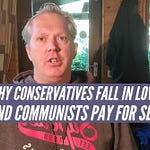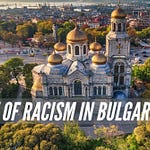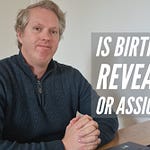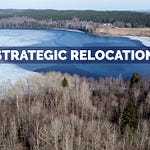In yet another plot twist, mainstream media have started rebranding freedom, which they now put in quotes, as a threat to our democracy. Yes, angry, alt-right truckers are said to have weaponized freedom to undermine our way of life. But, wait, if freedom is now a threat, then what is this “democracy” they speak of, if I may put that in quotes, if not totalitarianism? Should we continue to allow a fearful mob to vote themselves and everyone else into slavery?
I think not. Perhaps old fellow Churchill had it wrong, after all, when he said “democracy is the worst form of Government except for all those other forms that have been tried from time to time”. His wise words no longer hold true. Unchecked democracy, we see, leads to the worst of the worst forms of government, namely, by first negating people their life, liberty, and the pursuit of happiness—in name of safety and security—and then, the establishment of a totalitarian surveillance state in its place.
Why? Why is it so? Why does modern democracy have to devolve into tyranny? The answer should be self-evident: When you hand an easily frightened mob the right to vote on what the future of their society ought to look like, a cough and a sneeze suffice to move people to abolish their freedoms, along with those of everyone else.
“We’re in this together,” they keep repeating. But we’re not. We’re not all equally afraid, and some of us aren’t afraid at all. Who, then, should be at the helm of our nations, of Western civilization, and of the world as we sail into this dark storm? It should be the least fearful and the most competent of captains, and everyone else down the hierarchy should trust their leadership.
Not so in a democracy. In a democracy, the mob has the right to surrender itself to the elements, and drown.
You see, democracy only works when voters feel generally confident they may overcome the troubles looming ahead. When the majority of people, as in our time, succumb to irrational fears of invisible threats, we cannot rely on their ability to make sound decisions any longer. Having lost any sense of direction, we should do well to remind ourselves of the difference between port and starboard, between freedom and democracy.
Freedom favors gifted individuals. Democracy substitutes the value of the gifted for a leveling, numerical concept. The leveling has nothing to do with intelligence per se, for an academic man of high status may still vote against freedom and against the survival of his people. When a majority of the people has grown old and weak, democracies become equally myopic, and the need for short-term security overwhelms the demand for long-term thinking.
Those in favor of absolute democracy say, “my freedom ends where another’s begins” but what they really mean to say is, “your freedom ends where mine begins”. This is the rule of selfishness. One man said, “A country should be judged by how it treats its minorities.” How wonderful! But let us not forget that the most competent, most driven, and most gifted individuals among us are our most valuable minority. Yet in a democratic system, precisely this talented demographic is leveled by the concept of one man, one vote. A country that revered rather than feared its best might be judged more favorably.
You may be delighted to hear there are other views on freedom, too, the views of the strong. Historian Winwood Reade wrote, “God made all men equal is a fine-sounding phrase, and has also done good service in its day; but it isn’t a scientific fact. On the contrary, there is nothing so certain as the natural inequality of men.” Milton Friedman paraphrased Ben Franklin: “The society that puts equality before freedom will end up with neither.” And longshoreman Eric Hoffer nailed it: “The significant point is that people unfit for freedom—who cannot do much with it—are hungry for power.”
Indeed, this is where we are at. Power-hungry socialists who neither comprehend nor need freedom want to make sure no one else can have freedom, either. They have put themselves in charge of democracy out of a deeply rooted fear that the free and the brave might catch too much sunlight.
Still, a fearful life, a life in retreat, will not offer anyone greater protection from the outside world. A cowardly life does not guarantee one’s survival. Trying to lock things down in hopes of postponing societal collapse, by inventing more rules and more laws, and more forms of punishment for disobeying the rules and laws, will not bring salvation. We cannot allow control freaks to rule our societies any longer. It is, therefore, time for a more competent and more confident clique to simply take over.
Meanwhile, those who won’t give up their freedoms are now ostracized. The inclusive utopia provides no home for the brave and no land for the free. A self-appointed matriarchy has resorted to the sort of arbitrary measures that flow from magical thinking. Denying children to see each other’s and other people's faces, for example, certainly doesn’t curb the threat. It’s all symbolic measure, yet the matriarchs in charge of urban society have no other weapons at their disposal than to blame the youth for existing.
I say the youth are the future. And a country should be judged by how well a people helps the youth unfold their undiscovered potential. Rather than nipping the young in the bud, society should teach emotional strength, instill confidence, and tell young people they have a right to rely on their society for support. In return, the new generations shall pay back society with their budding skills and their newfound abilities.
How should, for example, youths develop their talents if the societies their own ancestors founded now tell them to be ashamed of the color of their skin? When did we pathologize white society? Why is it so that groups made up of homogenously white folk are automatically suspect? Whites trying to achieve anything at all now have to prove they’re not *all* white.
This condition is insane and unacceptable, and a consequence of a democracy in which whites are still electoral majorities. The problem is that half of the white people seem to wallow in guilt and shame. Each election year, they vote the other half of whites, who still feel proud, into submission by siding with the very people who declare that they hate us for being white.
Democracy, then, has become a threat to our freedom.
The doctrine of affirmative actionized equality does not stop Hollywood screenwriters from penning their peculiar brand of racism which insists that police chiefs are black, that Russian women are thieving terrorists, and the Asian kids are always smart, and the Mexicans are always gang members who befriend the autistic white guy. In their attempt not to be racist, American screenwriters have given us nothing but the most racist stereotypes.
This all flows from the democratic ideal of hating the best. On the surface, democratic racism may seem anti-white but it’s not. Harvard University, for example, actively discriminates against Asian applicants because they tend to do worse on verbal tests despite averaging higher on SAT and IQ tests. Indeed, Harvard at some point deliberately decided to attach greater weight to verbal skill in order to exclude Asian applications and introverts from being accepted.
If the racism of the left isn’t blatantly anti-white, then what do we call this condition that discriminates against white conservatives, Canadian truckers, female Russians, and introverted Asians? It is, in fact, hatred of human potential in general. Anyone expressing any desire for autonomy, for self-determination, for political, religious, or economic freedom is a “threat”.
The democratic racism of the Left, first and foremost, is born out of jealousy. Their racism targets the superior, the competent, the driven, the able-bodied. Here, we find the reason why the Left most feverishly agitates against white supremacy, for Leftism is the ideology of the anti-aristocracy. They favor not the rule of the best, they wallow in their hatred for the best.
There seem to be two kinds of elites at work, then, who, at times, exploit the people but in different ways. The first elite—I call them Mephistophelic, named after Mephisto the Devil. This brand of elitists tends to favor democracy precisely for the aforementioned reasons. Through their control of the media, they know they can instill upon the public a range of fears and threats, breeding a sense of guilt and shame that nudges the people toward abolishing itself.
The Mephistophelian elite is only interested in the people’s exploitation unlike the other kind of elite whom I call Faustian. The Faustian clique, driven by a heroic urge to do great deeds, as Hercules did, or Christ, wants to win victories for the people and inspire the people to follow the lead of brave men and women willing to sacrifice their lives for true human progress.
This is only possible if the democratic mob allows men and women of great talent to flourish. For this reason, Faustian leaders don’t necessarily favor democracy. They honestly don’t care about what form of a political system is put in place. They are goal-oriented, not process-oriented. All they know is they may sometimes have to leave some of the weakest individuals behind, precisely in order to secure the survival of their people as a whole.
This inevitable principle, like the Spartan mother, discards certain individuals in order to guarantee the vigor of everyone else. Of course, this scares the mob! Of course, democracy prefers short-term safety and security to put the whole of society on a path toward national growth and independence! The latter option requires there to be a hierarchy, and it puts the bravest, most competent people in charge of that hierarchy.
The democratic process, therefore, is born out of fear. Nevertheless, it may still be used in peacetime, or in times when the economy is booming, as a way to promote some amount of equity, for example, to curb civil unrest. But in times of disarray, when a crisis hits our shores, the Faustian principle must take to the helm, and under the authority of an aristocracy, the people shall be guided back to higher grounds.
Modern democracy has weakened the people. The substitution of real talent for script-fed actors has led to the further consequence that, within a single people any differences in terms of talent and competency have been artificially erased as in an absolute monarchy where the ruling lineage has been damaged by inbreeding.
This is not the rule of the people but in fact the rule of stupidity, mediocrity, a kakistocracy of half-measures, cowardice, and weakness. The cancel culture born of it aims not to cancel maladjusted men but rather to cancel the very men and women of high ability who might lead.
In my view, a country should be judged by how it treats its best. The jealousy of the mob ought to be beaten back from time to time. In return, the people of extraordinary ability have a civil duty to cooperate with one another in order to win great victories for their people.
I conclude that democracy ought to exist only in support of freedom and that we may never again sacrifice freedom merely to maintain the illusion of democracy.
When we, as a people, are faced with a seemingly insurmountable setback, the democratic people must be told to step aside so that the best of the best may take to the helm and set the course toward a greater future.










